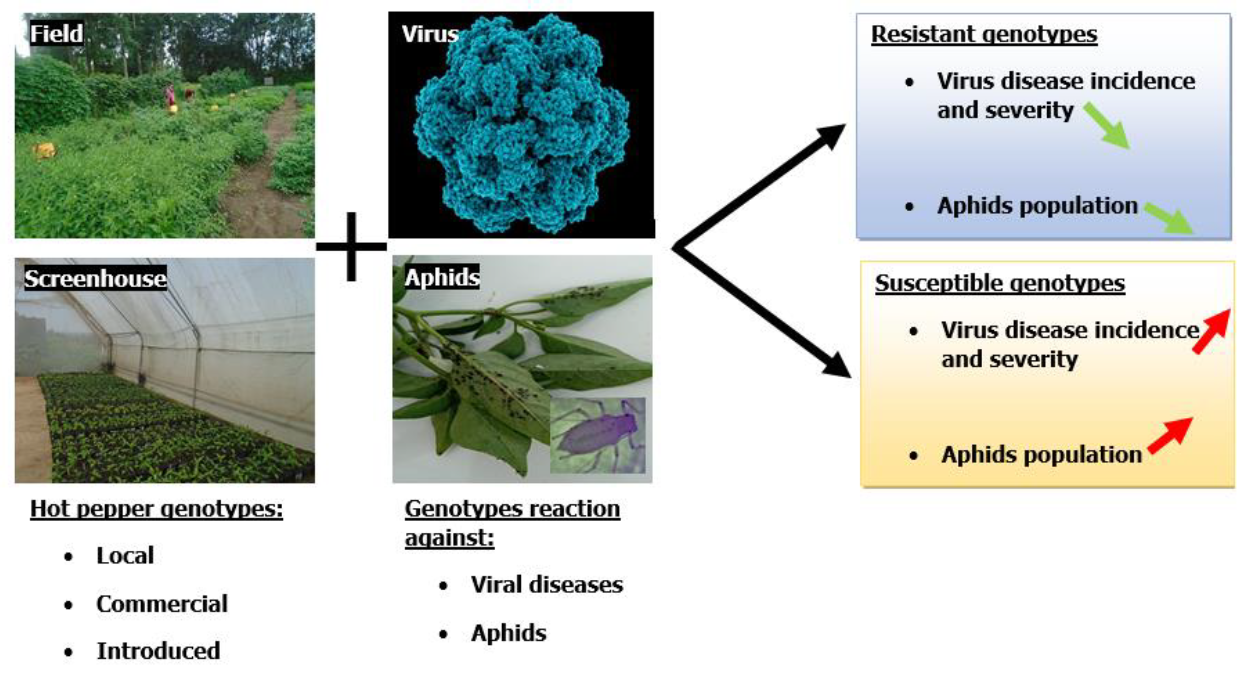Evaluation of hot pepper (Capsicum spp.) genotypes for resistance to viruses and aphids in Rwanda

Published 2020-10-23
Keywords
- Aphids,
- Capsicum spp.,
- field,
- genotypes,
- resistance
- screenhouse,
- virus ...More
How to Cite
Abstract
Hot pepper is an important crop in Rwanda but viral diseases and pests are major constraints to its production. Field experiments were conducted to evaluate the resistance of 18 hot pepper genotypes (4 commercials, 5 introduced and 9 local) to natural infection by viruses and aphid infestation, in two agroecological zones of Rwanda. Fourteen genotypes were further evaluated for resistance to Cucumber mosaic virus (CMV) under screenhouse conditions. Disease incidence and severity were recorded in all experiments while population of aphids was assessed in the field. Diseased leaf samples from each genotype in the field were analysed using polymerase chain reaction to detect the presence of viruses, while samples from the screenhouse were analysed using serological assay. Results showed significant (p<0.05) differences in disease incidence and severity among genotypes. Three genotypes namely PBC 462, 00767PPR and 0802PPR were rated as resistant to viral diseases while genotype HP 0117, PP9852170 and PP99505197 were moderately resistant. All commercial and most of the local genotypes were susceptible compared to the introduced lines. There was no difference in genotype infestation by the aphids. The genotypes that are resistant to viruses are recommended for use by growers and in breeding programs.





